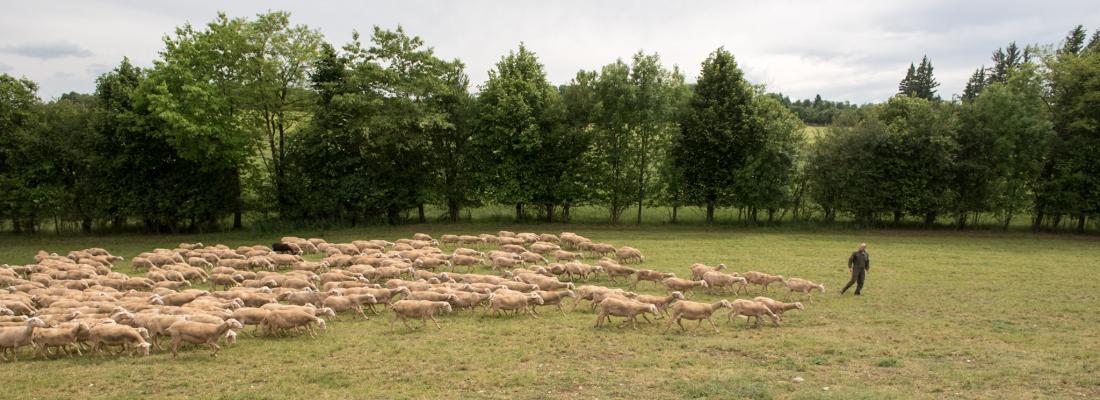Climate change and risks Reading time 3 min
Major European studies for sustainable small ruminant farming
Published on 14 March 2024

Genetic selection of small ruminants for more sustainable livestock farming
The main objective of this large-scale programme, involving 26 partners from 13 countries, was to develop new, collaborative strategies to improve the resilience and efficiency of small ruminant livestock farms, namely sheep and goats. By efficiency, we mean making better use of feed resources (feed efficiency, mobilisation of reserves, limiting gas emissions, etc.) available to the animals.
These new strategies respond to a growing demand from today's society: to enable the livestock sector to become more sustainable... A more sustainable livestock sector, but also more resilient, capable of continuing to function in extreme environmental conditions and acute stresses (nutritional, infectious). Resilience involves improving the health and longevity of animals, and adapting their social behaviour and movements. It also involves providing short-term responses to biotic stress (nutritional, infectious) and abiotic stress (emotional stress).
As part of an agroecological approach, the scientists worked on new selection strategies for 46 European sheep and goat breeds, covering almost 5,000 farms. They have developed a number of projects aimed at limiting the use of concentrated feed and plant protection products, among other things, in order to reduce the environmental footprint of small ruminant farming. Particular attention was paid to animal welfare, health and efficient use of local feed resources.
This large-scale project ended in 2023 with a final meeting attended by 59 researchers and 12 stakeholders, demonstrating that the project had been a success.
Innovative methods and tools for the international community
The work carried out by the partners involved in SMARTER has looked at various approaches aimed at improving resilience and efficiency of sheep and goat sectors, both at the level of individual animal, population or breed, and at the more comprehensive level of the farming system.
These studies have led to major advances in the breeding and selection of small ruminants through the development of new efficiency and resilience criteria that can be used in selection, and improvements in the identification, understanding and modelling of possible trade-offs between efficiency and resilience. This mainly concerns 3 models. The first focuses on resource allocation and the study of trade-offs between resilience and efficiency, while the second looks at genetic selection based on statistical indicators of resilience. Finally, the last model, centred on the herd, simulates the economic interactions between the animal, management, prices and local conditions.
New methods have been put in place to produce animal selection tools, with the aim of international collaboration for genetic evaluations shared between countries. Collaboration, logistics and international evaluation agreements have been signed for a number of key breeds, such as the Saanen goat and Manech, Texel and Suffolk sheep.
In addition, the project has produced a unique international genomic database containing around 12,000 sheep and 6,000 goats, as well as new methods for characterising breed diversity in relation to their adaptive traits.
This work has led to the publication of 55 scientific articles, and the knowledge generated has advanced the small ruminant breeding sector. It has opened up new avenues of research and new projects such as "Grass to Gas" and "Phenopasto", which are particularly interested in greenhouse gas emissions.
SMARTER H2020 has a great future ahead of it.
